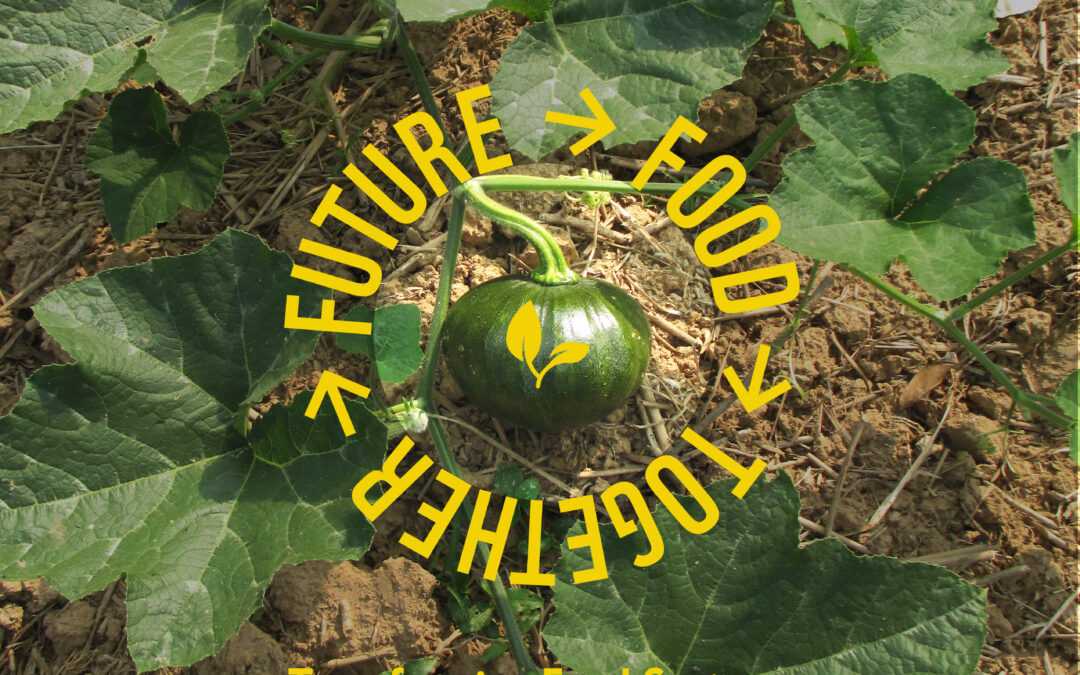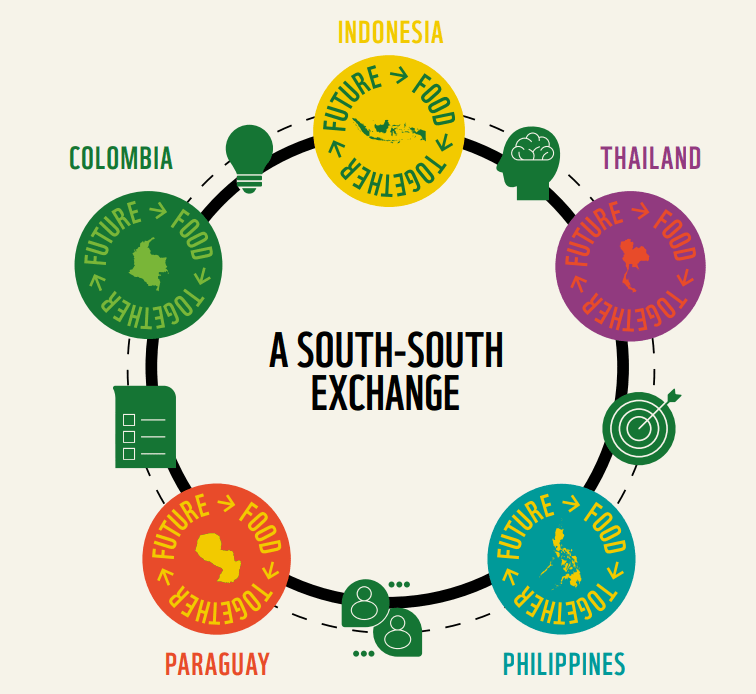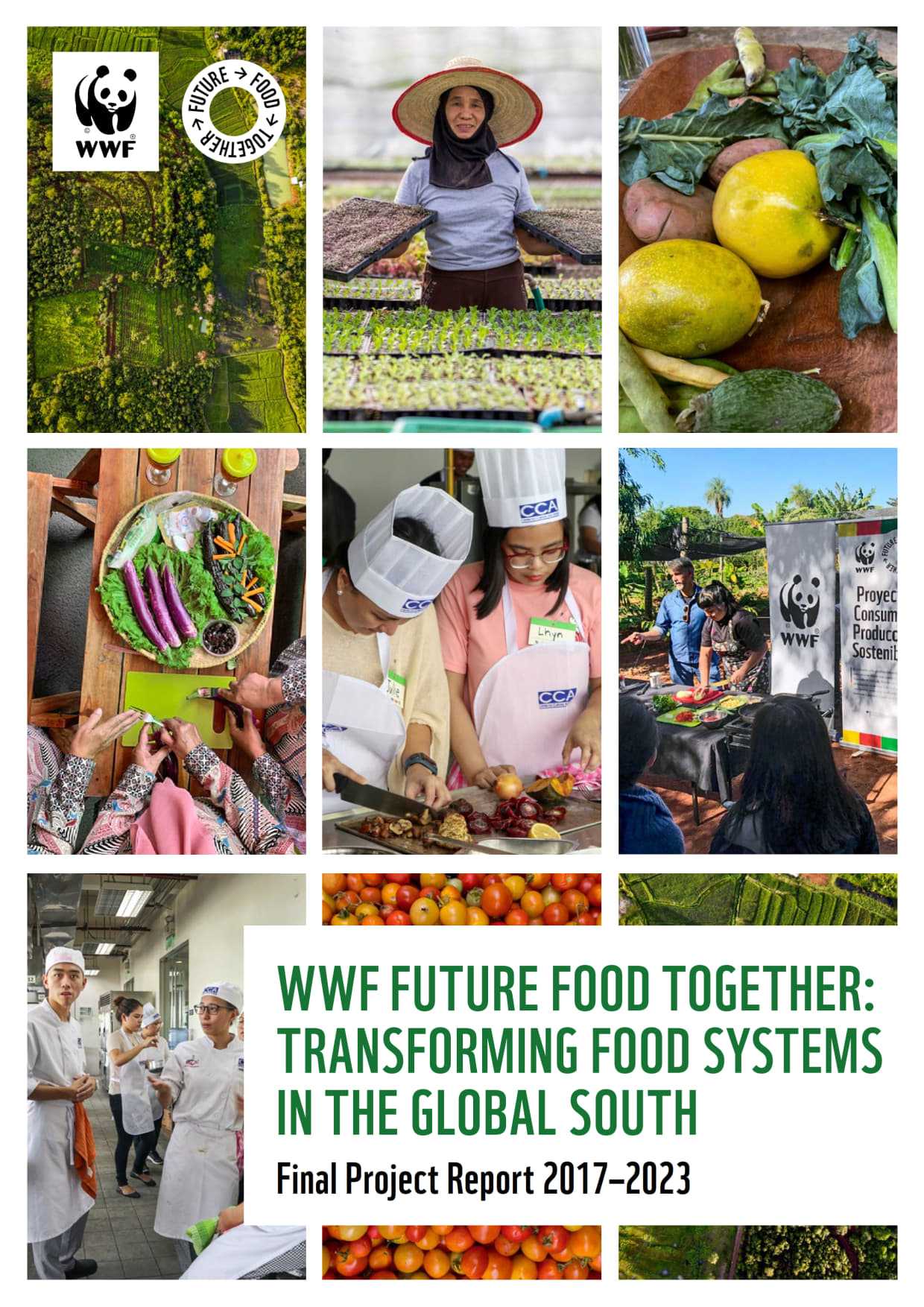Future Food Together © WWF-Germany
The first phase of the project started in 2017 and came to an end in 2023. Below you can see a brief overview.
The first phase of the initiative included in-country teams from Indonesia, the Philippines, Thailand, Colombia and Paraguay, in addition to a team supporting WWF’s global efforts on the food agenda.
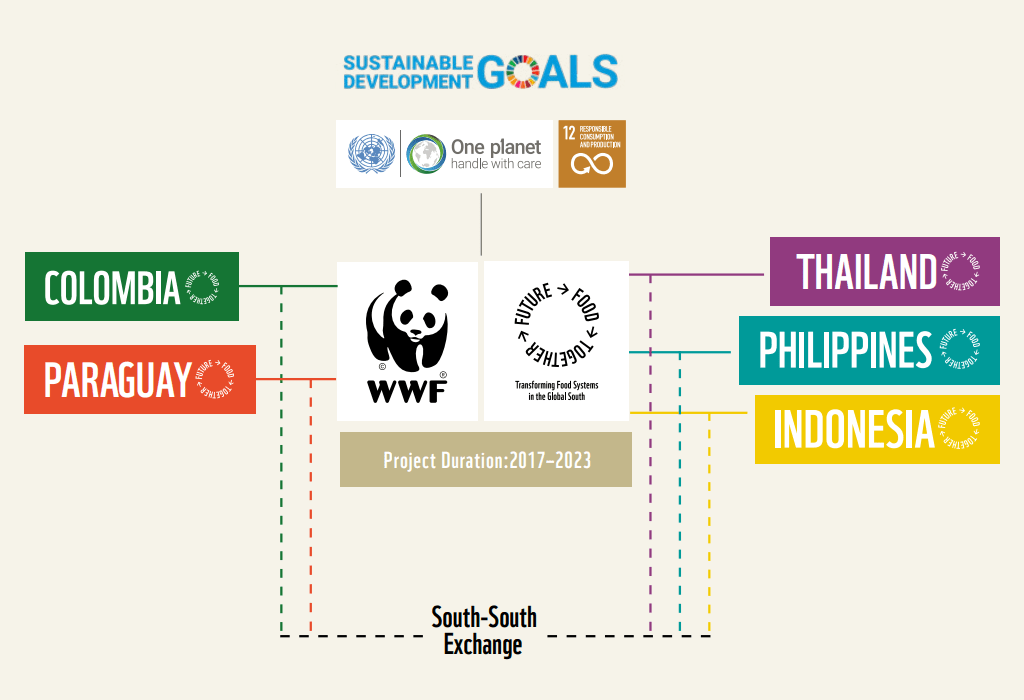
Watch our Video to get an Overview of our Work
Involvement of Diverse Actors
Context-specific interventions were developed collaboratively in each of the five countries, which focused on a number of levers targeting three main stakeholder groups: government, private sector (including agribusinesses, retailers and smallholder farmers) and consumers.
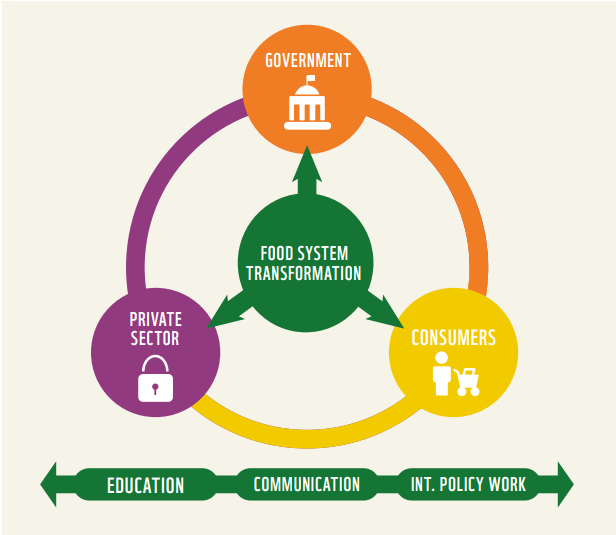
South-South Exchange
A regular learning exchange among the in-country project teams was established. The ‘South-South Exchange’ helped countries work together better and share new ideas, which made things more efficient and helped for the development of innovations.
Final Publication IKI SCP South South
If you want to know more on what the project participants have worked on for six years, our final publication gives a good overview. The report starts by elucidating the imperative need for transforming our food production and consumption practices. It then outlines the Future Food Together strategy and provides a detailed summary of our accomplishments, focusing on individual countries and global endeavors.
Download the report here.
Lessons Learned and Recommendations
1. The shift to sustainable practices (such as agro-ecology) for smallholder farmers depends on a holistic consideration of social, environmental, and economic dimensions present in food systems.
2. The proactive engagement and support to food sector businesses can lead to the integration of sustainability within their operations and supply chains.
3. Consumer behaviour is multifaceted.
4. Knowledge gaps must be narrowed through both mission-oriented research and the collection, evaluation and accessibility of food system data.
5. Inclusive collaboration is needed at all levels.
6. Policy coherence and integration must be pursued from multiple angles.
Way Forward – Phase II of the Project
Starting in 2022, Future Food Together transitioned into a second phase with the project countries Thailand and Cambodia, cooperating with government departments, private businesses, farmers, and civil society to implement a series of coordinated actions aimed at promoting sustainable consumption and production practices.

